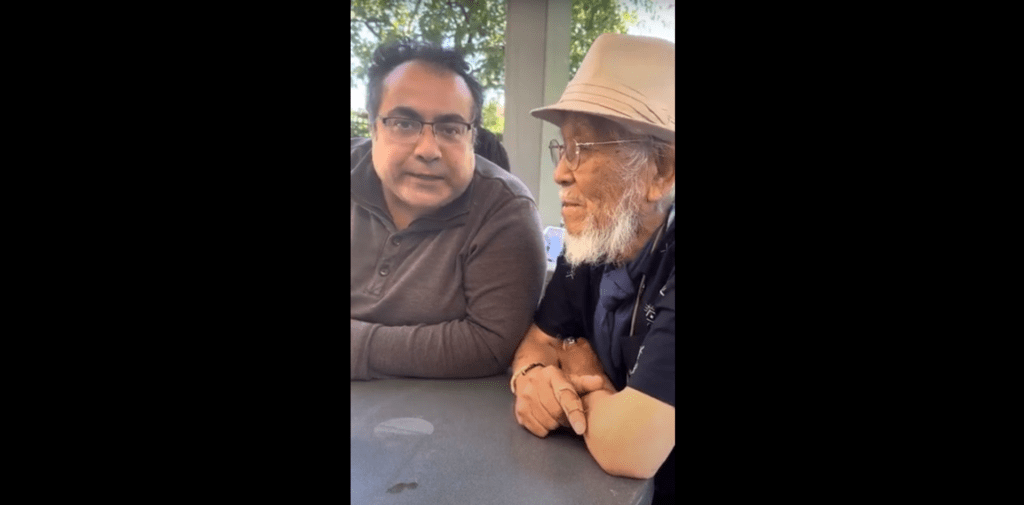Harmony for Humanity: Uniting for Peace on Hiroshima Day
This year’s theme for No Ethics in Big Tech’s—formerly Ethics In Tech—Hiroshima Day annual commemoration and panel is “Harmony for Humanity: Uniting for Peace on Hiroshima Day.”
Our lineup this year includes a diverse mix of speakers and comedians, promising a unique blend of comedy and discussion that makes No Ethics In Big Tech events a
one-of-a-kind experience.
Legendary political comedian Will Durst is on the mend and back in our all-star lineup, along with stand-up superstar, journalist, and activist Francesca Fiorentini,
the ever-uproarious Chloe McGovern, and cosmopolitan humorist Annette Mullaney, whose work in Big Tech seasons her always witty sets.Singer/songwriter/guitarist Michael Rufo—whose crafty lyrics skewer government
surveillance and current affairs—is our special musical guest.
On the speaker side, host and No Ethics in Big Tech founder Vahid Razavi has assembled one of our best panels yet. Author and Veterans for Peace activist Helen Jaccard will lead off a lineup that includes Rev. Dr. Dorsey Blake of the Church for the Fellowship of All Peoples, Common Dreams writer Brett Wilkins, RootsAction founder Norman Solomon—whose latest book, War Made Invisible, is a must-read for all peace-lovers, José of the venerable Electronic Frontier Foundation, and our very special guest, atomic bomb survivor and Hiroshima: Bridge to Forgiveness author Takashi Thomas Tanemori.
“I am looking forward to meeting many of you,” says Tanemori. “It is wonderful that you are promoting peace. For me, I’m promoting peace through forgiveness.”
Always one of our more popular events, this year’s Hiroshima Day commemoration is all the more timely given the release of Christopher Nolan’s summer blockbuster Oppenheimer, a biopic chronicling the life of theoretical physicist and “father of the atomic bomb” J. Robert Oppenheimer. Being this is a No Ethics in Big Tech event, we won’t pull any punches like Hollywood inevitably does—although we stand in solidarity with striking writers and actors. As always, we’ll have a frank discussion about the history, current state, and future of nuclear weapons, which, arguably, now as much as ever represent an existential threat to humanity.
The world’s nine nuclear-armed countries—the United States, Russia, China, France, Britain, Israel, India, Pakistan, and North Korea—spent a combined $83
billion on their nuclear arsenals last year, with more than half of that amount attributable to the U.S. Instead of disarmament, the United States is spending tens
of billions of dollars modernizing and upgrading its nuclear arsenal. Another world is possible. The International Campaign to Abolish Nuclear Weapons (ICAN) was awarded the Nobel Peace Prize in 2017 for its work culminating in the landmark Treaty for the Prohibition of Nuclear Weapons, which now has 92 signatories and 68 state parties. However, none of the world’s nine nuclear powers have signed the treaty. But as United Nations Secretary-General António Guterres recently asserted, eliminating nuclear weapons is “not only possible, it is necessary.”
Guterres warning came amid heightened nuclear fears during Russia’s invasion of Ukraine and nuclear threats from Russian leaders. The world hasn’t been this close
to nuclear war since the 1980s, when tensions between the United States and Soviet Union reignited to levels unseen since the Cuban Missile Crisis. According
to the Bulletin of Atomic Scientists’ Doomsday Clock, we are closer to “midnight”—nuclear armageddon—than even during the dark days of the Cold War’s final decade.
It doesn’t have to be this way. Join us on Hiroshima Day, August 6, and let’s realize a better world together
